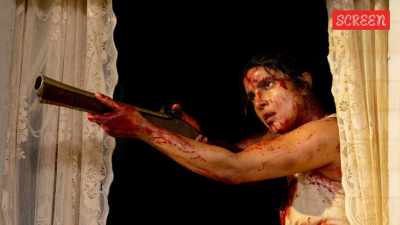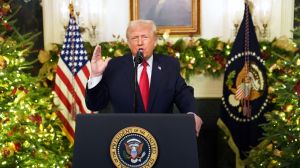Putin opponents are made to vanish from TV
On a talk show last fall, a prominent political analyst named Mikhail G. Delyagin had some tart words about Vladimir V. Putin.

On a talk show last fall, a prominent political analyst named Mikhail G. Delyagin had some tart words about Vladimir V. Putin. When the programme was later televised, Delyagin was not.
Not only were his remarks cut, but he was also digitally erased from the show, like a disgraced comrade airbrushed from an old Soviet photo. The technicians may have worked a bit hastily, leaving his disembodied legs in one shot.
Delyagin, it turned out, has for some time resided on the so-called stop list, a roster of political opponents and other critics of the government who have been barred from TV news and political talk shows by the Kremlin. The stop list is, as Delyagin put it, 8220;an excellent way to stifle dissent.8221;
It is also a striking indication of how Putin has increasingly relied on the Kremlin-controlled TV networks to consolidate power, especially in recent elections.
Onetime Putin allies like Mikhail M. Kasyanov, his former prime minister, and Andrei N. Illarionov, his former chief economic adviser, disappeared from view. Garry K. Kasparov, the former chess champion and leader of the Other Russia opposition coalition, was banned, as were members of liberal parties.
Even the Communist Party, the only remaining opposition party in Parliament, has said that its leaders are kept off TV. And it is not just politicians. Televizor, a rock group whose name means TV set, had its booking on a St. Petersburg station cancelled in April, after its members took part in an Other Russia demonstration.
When some actors cracked a few mild jokes about Putin and Medvedev at Russia8217;s equivalent of the Academy Awards in March, they were expunged from the telecast. Senior government officials deny the existence of a stop list, saying that people hostile to the Kremlin do not appear on TV simply because their views are not newsworthy.
All the major national and regional networks are now owned by the government or its allies.
- 01
- 02
- 03
- 04
- 05































